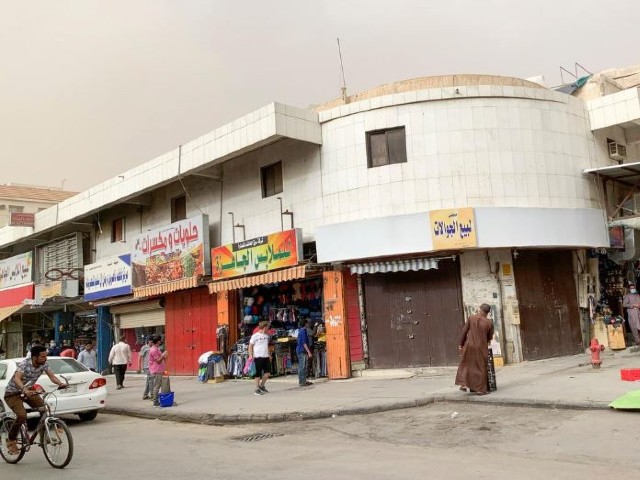
Saudi malls fill again as kingdom eases coronavirus closures
Security guards took shoppers’ temperatures as a small number of visitors entered upscale malls in central Riyadh
RIYADH: Saudis began tentatively returning to shopping malls and open-air markets on Wednesday after authorities relaxed restrictions imposed to curb the spread of the novel coronavirus.
Security guards took shoppers’ temperatures as a small number of visitors entered upscale malls in central Riyadh. A strong smell of sanitiser wafted through the homewares, cosmetic and clothing stores.
Many welcomed the semblance of normalcy after being cooped up at home due to curfews imposed since late March, especially with the start of the Muslim holy month of Ramazan on Friday.
The kingdom on Sunday eased movement restrictions between 9am and 5pm except in Makkah. Schools, restaurants, mosques and other public venues where physical distancing is difficult to maintain remain closed and social gatherings of more than five people are banned.
“The reopening is being done in a limited way, it’s very well done so that we can get our essential goods,” said 22-year-old Faisal al-Qanas at Hayat Mall.
With online shopping still fairly new to the kingdom, malls remain popular, particularly for large numbers of Saudi Arabia’s under-30s, who make up roughly 80% of the country’s 30 million population. Many shoppers on Wednesday were young women.
Saudi eases coronavirus curfews, keeps 24-hour curfew in Makkah
“They’ve taken precautions - there are gloves, masks, they’re making sure people keep enough distance between each other,” said 19-year-old Nojod Alshammari, who was also visiting Hayat Mall.
Authorities urged shoppers to practice social distancing and recommended that children, the elderly and those with compromised immunity remain at home.
In Riyadh’s southern Batha neighbourhood, where many low-income foreign workers live and work, shops and open-air markets were packed with people, a few wearing face masks or gloves.
Vendors were eager to see customers return.
“I hope I can make some gains today, as the last few weeks were dead and I ran out of most of my savings,” Khurshid, a Pakistani fruit and vegetable seller, said.
He was selling produce from a small cart on a dusty side street for half the price of large supermarkets.
“I want to sell as much as possible. I didn’t send any money to my wife and children for the last two months.”


1732273396-0/Copy-of-Untitled-(72)1732273396-0-270x192.webp)
1732269802-0/Copy-of-Untitled-(71)1732269802-0-270x192.webp)
1732261957-1/Copy-of-Untitled-(66)1732261957-1-270x192.webp)










COMMENTS
Comments are moderated and generally will be posted if they are on-topic and not abusive.
For more information, please see our Comments FAQ